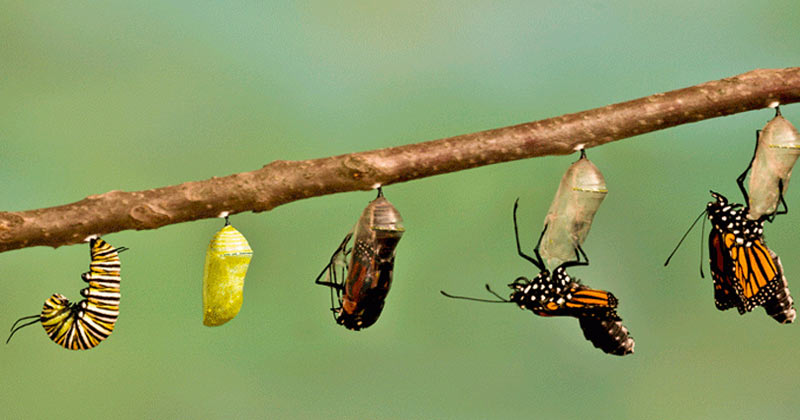Caterpillars are heavy eaters compared to their small size. They start eating as soon as they are born and keep eating till the day they shut themselves in a capsule, later to be turned into a beautiful butterfly. But why does the Caterpillar eat so much? Let’s delve into the caterpillar life cycle to uncover the reasons behind their hearty appetites.
Although they are only a few centimeters long, caterpillars are real eating machines. They can perforate the entire leaves of a plant from top to bottom in no time. But they don’t want to annoy anyone. The many plant foods provide small animals with the energy they need to transform themselves into butterflies. This process, known as the Caterpillar Life Cycle, is a testament to nature’s intricate beauty and transformational prowess.

Caterpillars are nothing more than butterfly larvae and are even referred to as the ‘eating stage’ of this pretty insect. They develop from the eggs, which the female butterflies usually cleverly lay on a forage plant of the respective species after mating. After hatching, the caterpillars can devote themselves to their only purpose in life on the spot I.e. eating and growing. Because only when they are fully grown, are they ready for the transformation into butterflies.
Also Read: The Rare Butterfly And Rajasthan: A Tale Of India’s 1328th Species Of The Brightly Colored Fly!
When this time comes, the worm-shaped larva pupates first. That means that it forms a solid shell under which its body and organs gradually transform into that of a butterfly, and it’s a Life Cycle of Caterpillars. Meanwhile, they do not have a quick snack. The pupae stay in one place and cannot eat any food, so why does caterpillar feel very hungry all the time. For this phase, it is essential for survival that the insatiable caterpillars have had their stomachs full beforehand.

Thanks to the initial large feeding and following the motto ‘Every day is a cheat day’, they have not only reached the size necessary for pupation but also have important reserves that sometimes even extend beyond the pupal stage. They basically store the energy for later use as they will not be able to eat anything for a long time.


